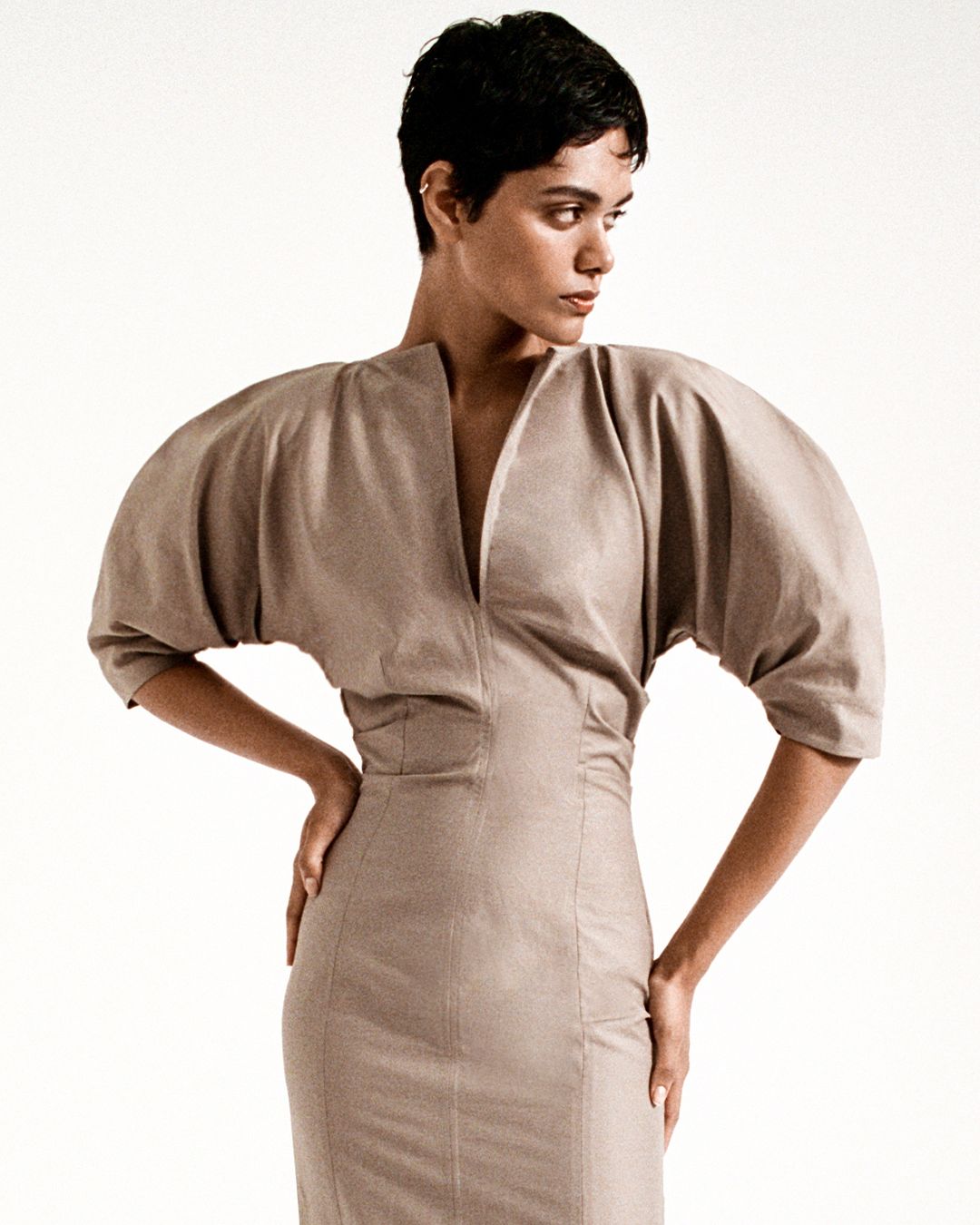In Scanlan with Zinnia Kumar
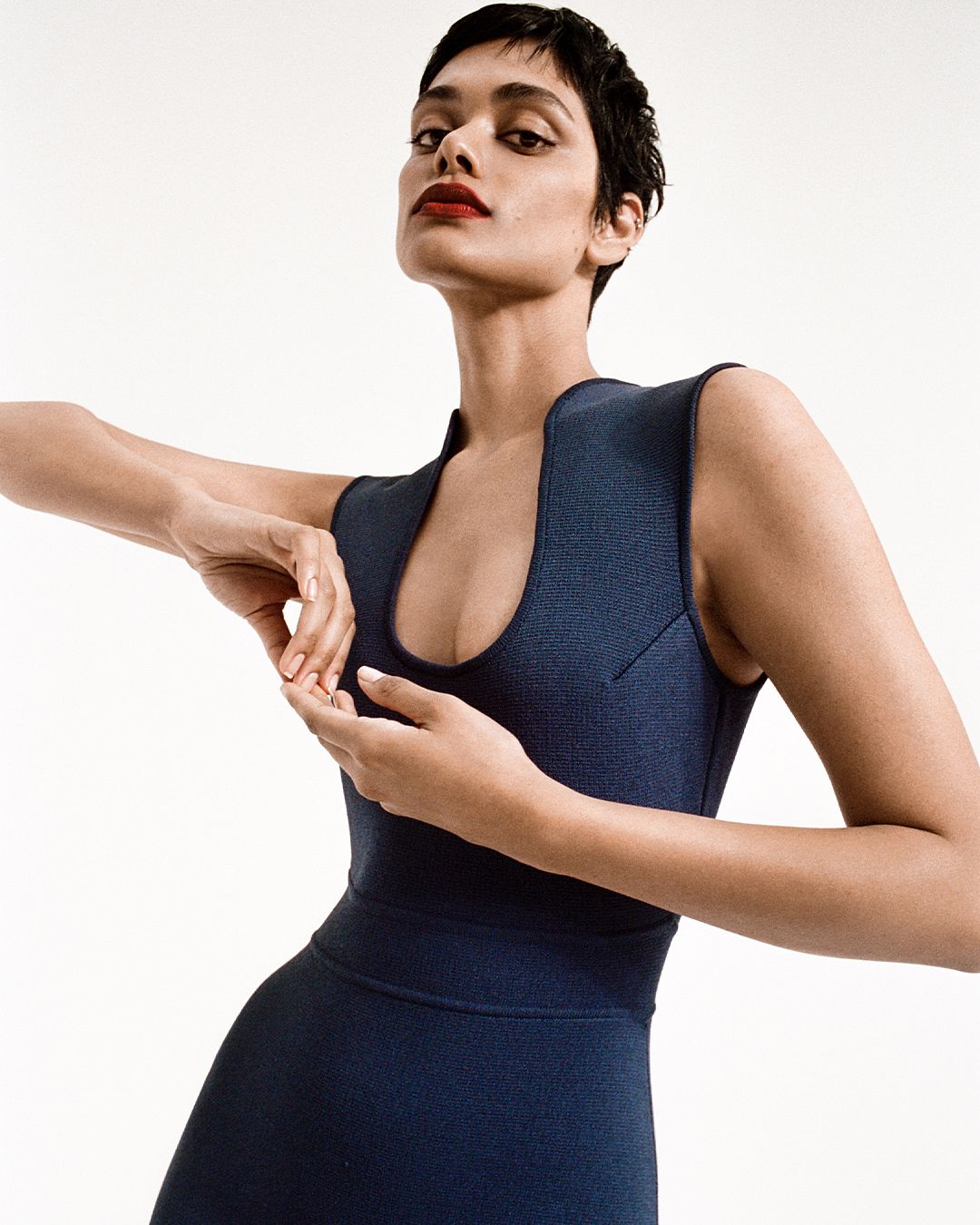
Crepe Knit Scoop Neck Dress
The formidable Zinnia Kumar could be described as the ultimate multi-hyphenate. The published scientist, chartered ecologist, activist, and model, discusses her versatile career, compelling journey to being included in Vogue India's 2022 list of 50 most influential global Indians, and the complex conversations she wants to have with the Beauty and Fashion industries.
As a published scientist, CIEEM accredited Ecologist, and Conservation Biologist, Zinnia is expanding her studies by undertaking a Master of Science in Industrial, Organisational & Business Psychology at University College London.
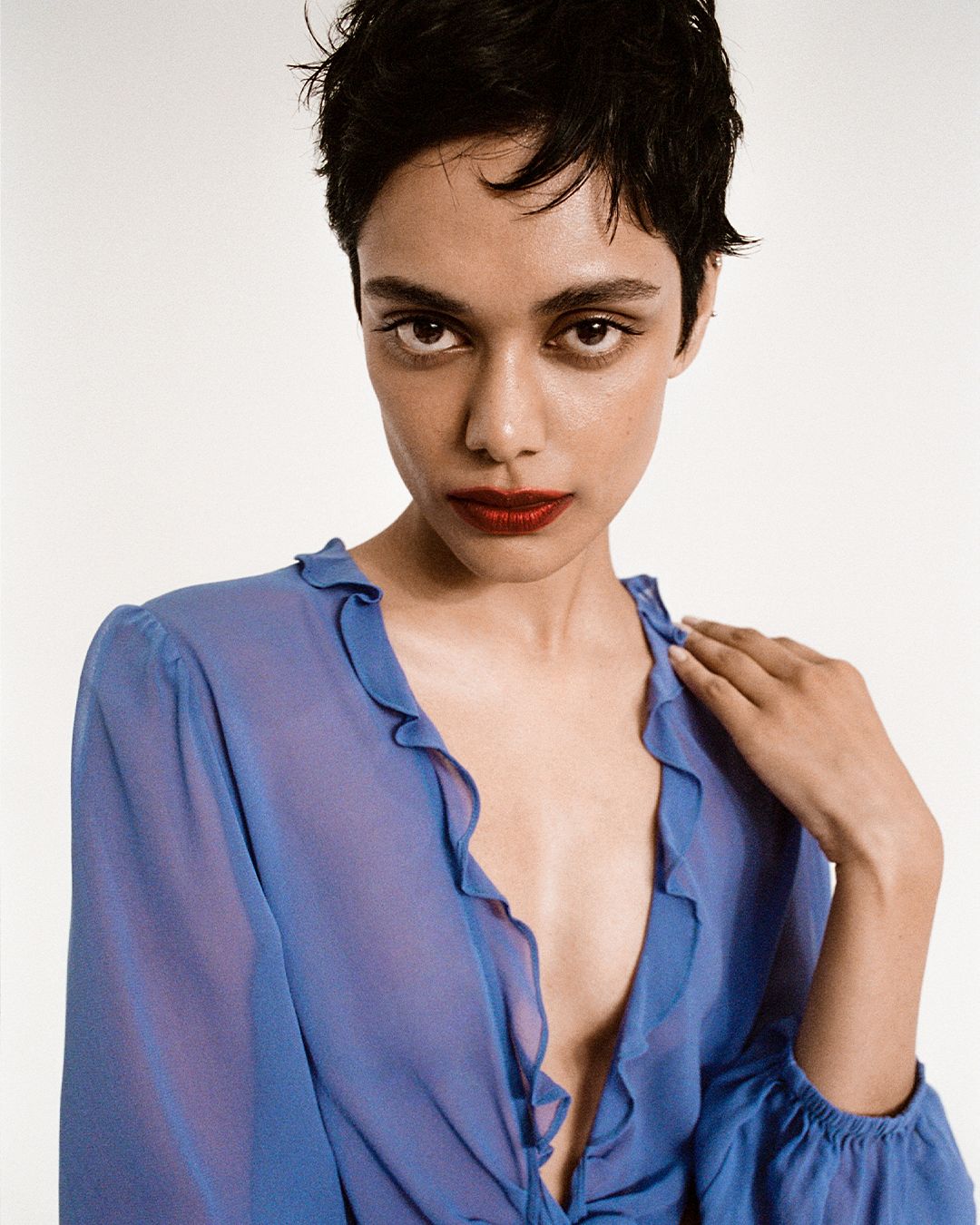
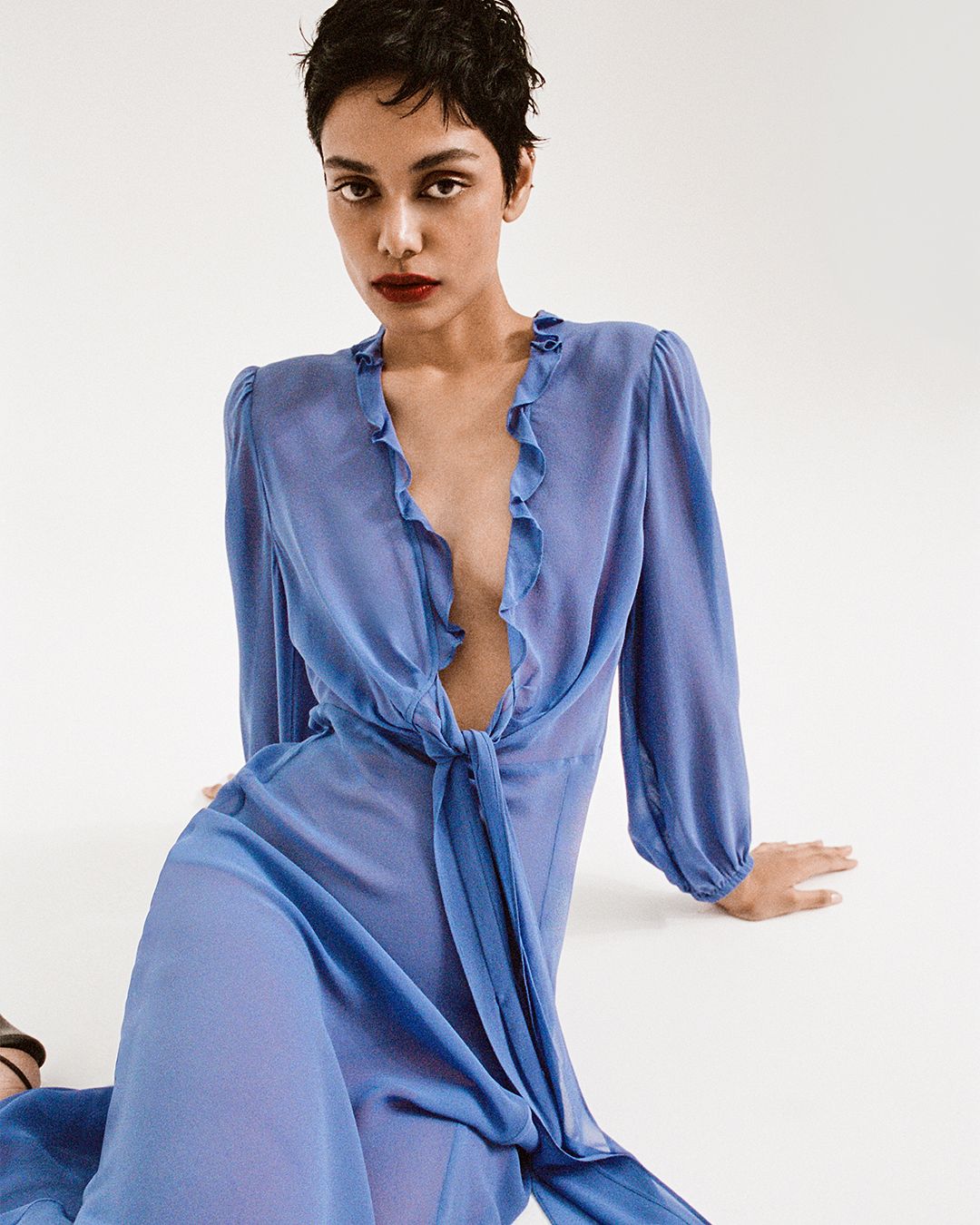
Silk GGT Ruffle Dress
At what age did your passion for Ecology and Biology begin?How do you practice your learnings and understanding of sustainability in your daily life?
My family’s 5 generation cane farming background obviously piqued my interest. But, the moment I knew I was literally 4 years old! I was socially awkward and I found comfort being outdoors, something about animals and rugged untouched places made me feel like I belonged.
The irony of working in fashion and also being an environmentalist is not lost on me, I am by no means perfect at this. However, I feel I can use this position to create change from the inside out of the industry. Personally, some of the things I do is, I am a minimalist, I don’t like owning too many things and that goes for clothes too. I only buy what I need, but spend a bit more to get good quality pieces that last a long time. I grow most of my own vegetables when I am back home in Sydney.
However, I think sustainability is fundamentally psychological and based on your values: it’s the way we treat others, the mindfulness we live our lives, and how we consume things. Our values affect the choices we make for example some people would think that leather is more environmentally sustainable because it is biodegradable, however, others might think leather is ethically unsustainable and nylon made from plastic is a better choice even though it is not biodegradable, both are correct, but both would also disagree with each other.
Sustainability doesn’t have a completely clear definition that everyone agrees with, so it is important to define it by our own values and be authentic to our beliefs, even if others disagree with us.
Currently residing in London, Zinnia traveled to Paris during fashion week to be photographed by Jess Ruby James in new season Scanlan Theodore.
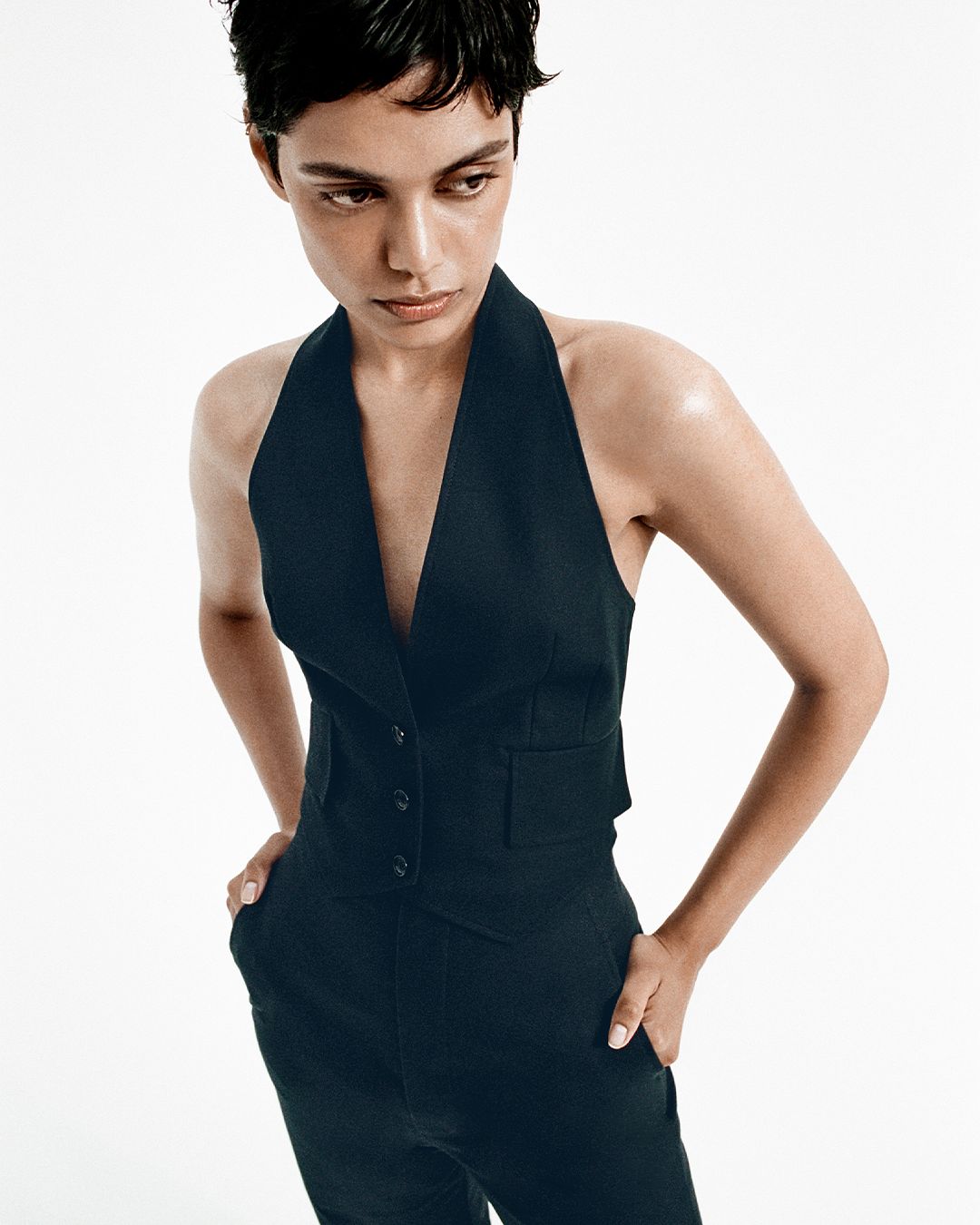
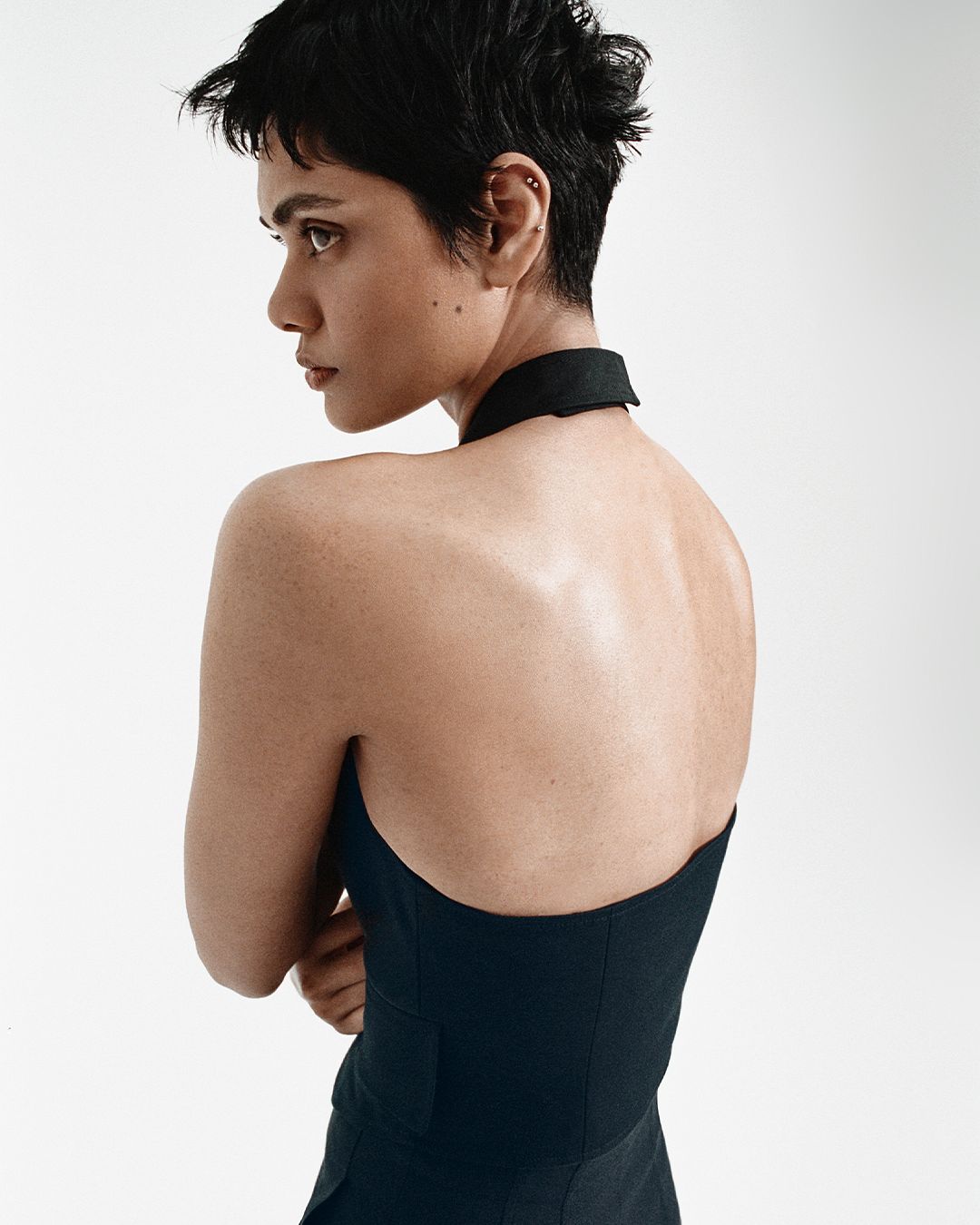
Double Cotton Waistcoat and Double Cotton Trouser
Your expansive career has allowed you to live and work all over the world. Where is your favourite city to travel to? What do you enjoy most or miss the most about home in Sydney?
I love London and I love Sydney. For different reasons!
I love the energy, opportunity, and creativity of London. I love the sunshine, nature, and friendly people of Australia. Actually, I hadn't been home for a while, it was so wonderful being on the Scanlan Theodore set in Paris with the team. There is something about Aussies that is just so warm, welcoming, and inviting and no matter which country you meet them in, it feels like a warm hug, like home.
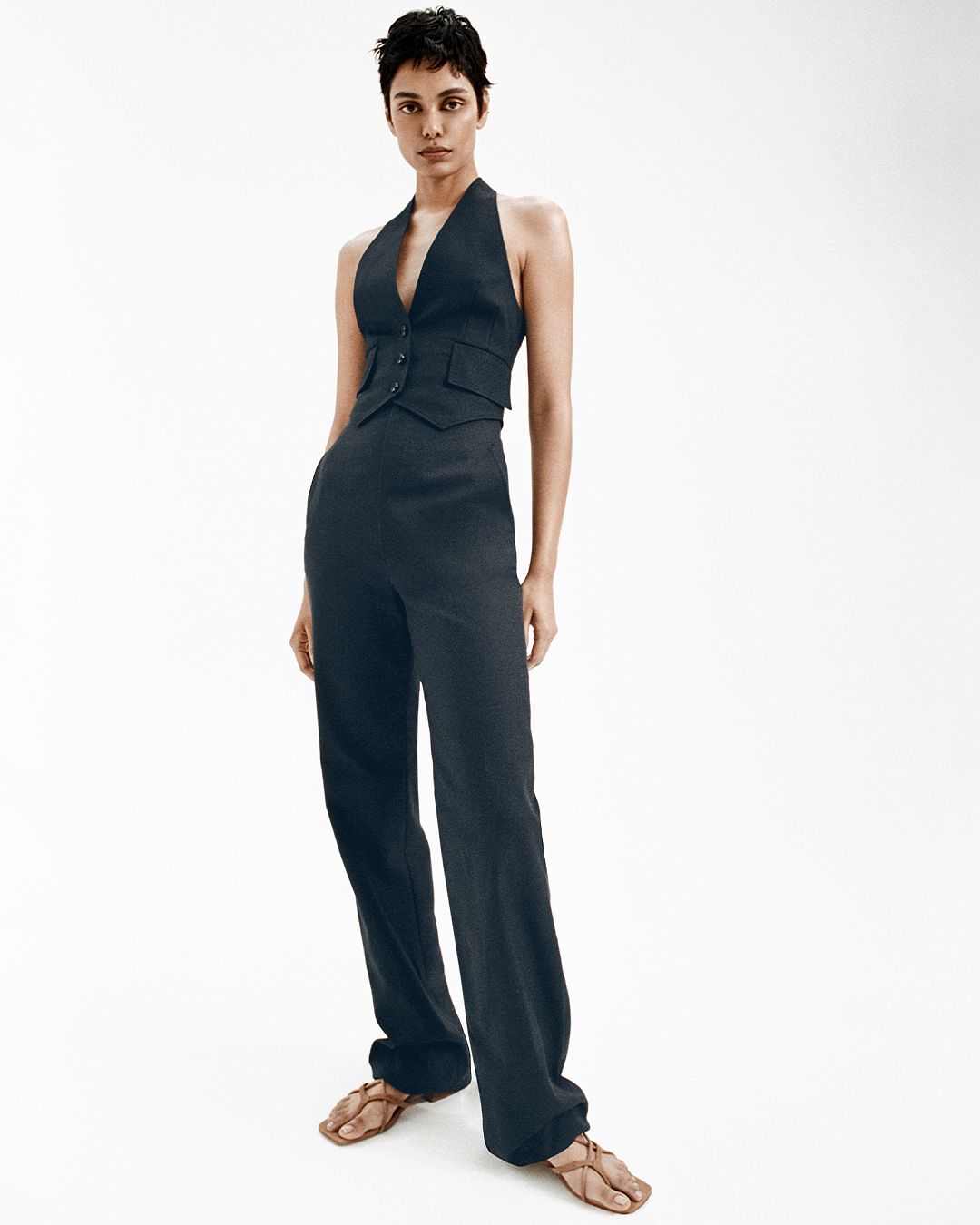
How would you define your personal style? Has your career as a model influenced your eye for fashion?
Growing up I was a bit of a metal head so I would wear a lot of black and heavy metal band t-shirts. When I first started modelling I thought I had to be someone else, so I took my piercings out and very uncomfortably wore frilly pink dresses and I tried to change my personality into what I thought they wanted me to be.
With time, I found it's totally OK to be myself authentically. I would say today my personal style is about good tailoring, quality fabrics, powerful bold cuts, and simple colours with an edge. I don’t follow trends, so it is a classic wardrobe that won't date over the years. I usually accessorise my outfits with a touch of understated punk/metal-inspired jewellery, accessories, or shoes.
Growing up in Sydney in a fifth-generation immigrant family, how has your South-Asian identity and heritage, influenced and inspired you?
First of all, it was a bit of self-discovery, because I wasn’t sure which world I belonged in or how my identity integrated. On top of that having Northern, Eastern, and Southern Indian ancestry met that I didn’t quite fit into one location or the stereotypes that came with each region, which created another layer to deconstruct.
However, one thing I am lucky about is how open and chill my family has been, I am lucky enough to have cousins who are also ethnically part Indigenous Australian, iTaukei, Irish, English, and Spanish, with people of all religions and skin tones. I think growing up with that open welcoming attitude to diversity where everyone felt like they belonged no matter what they looked like, where they were from or what their orientation was, really inspired me to believe that it is possible to create a world where everyone genuinely belongs because I experienced it myself.
Having studied the pseudo-science of eugenics and physiognomy, Zinnia Kumar is an expert on the history of beauty ideals and is an advocate against colourism.
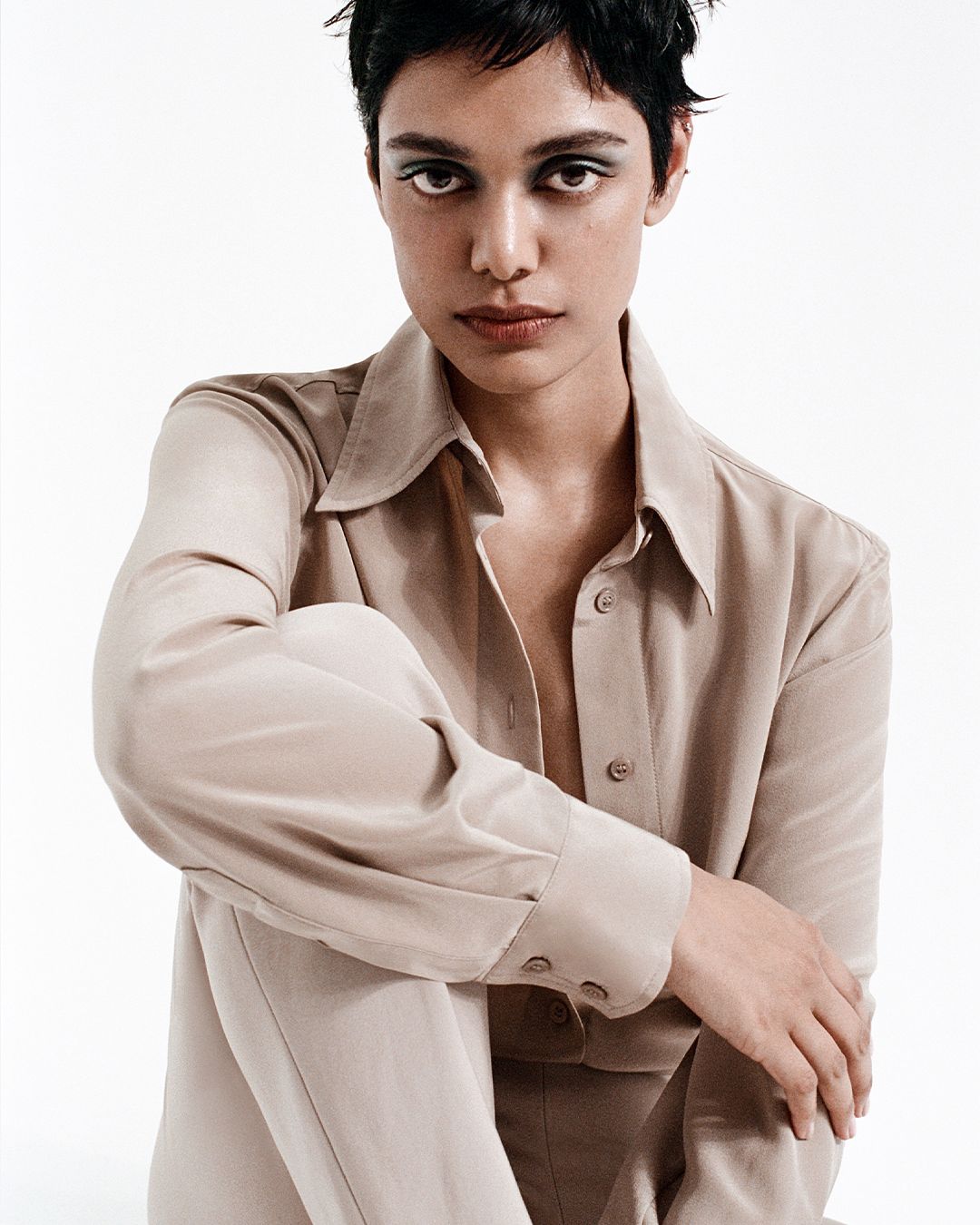
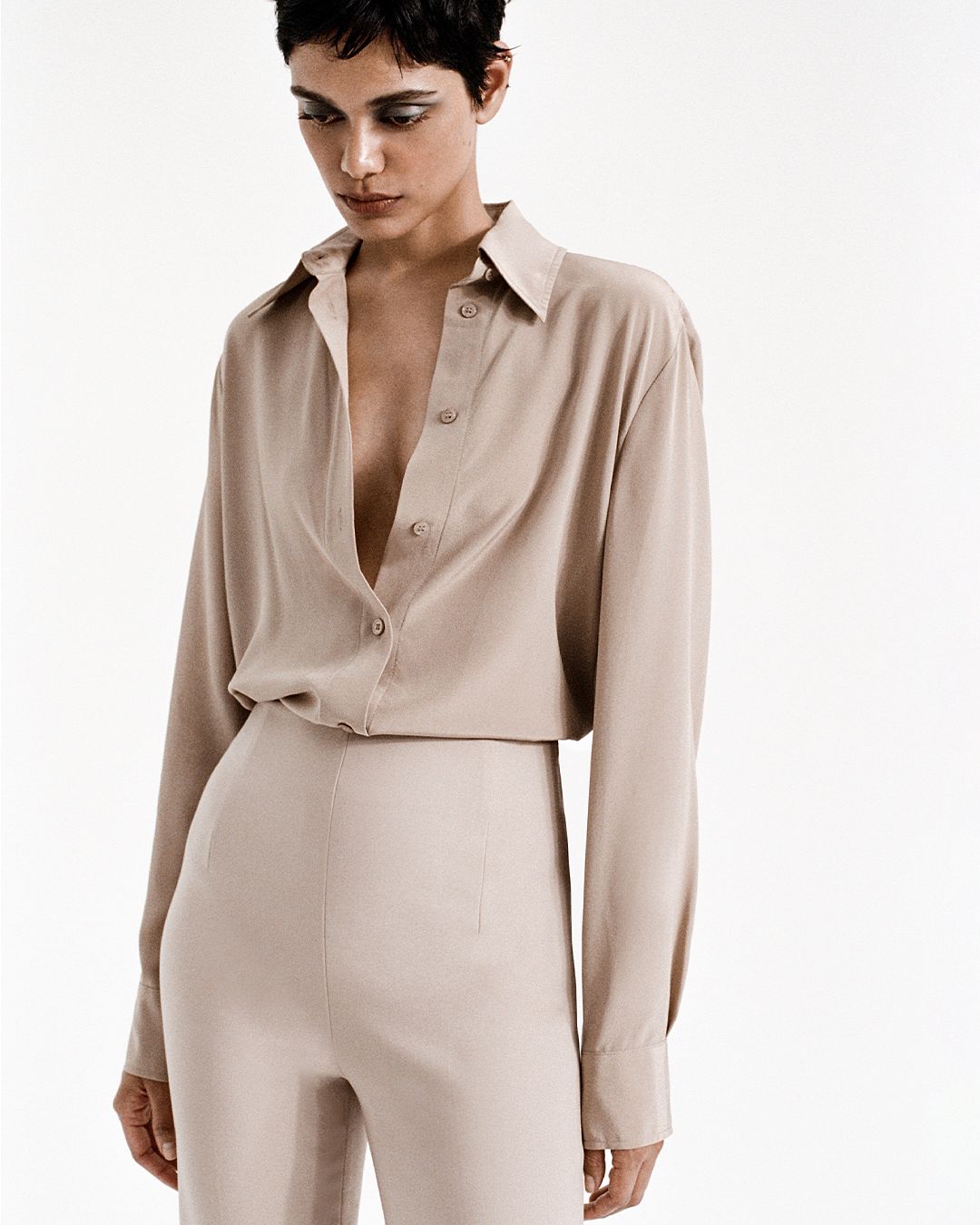
Silk Classic Shirt and Italian Highwaist Slim Trouser
When did your interest in the conversation about the beauty industry and global beauty standards begin?
Throughout my life I never understood social beauty ideals or human attraction. In high school, I didn’t understand the concept of ‘hot’ or why my friends found certain celebrities attractive. Most of all I didn’t understand why society chose a few and excluded many from the definition of beauty, whilst using the few to make the many feel bad about themselves. It still seems weirdly toxic and bizarre that we still do this as a society. As I searched for the origins of this bizarre practice I realised beauty is and was a political construct. Politically driven historic wrongs still create implicit glass ceilings for certain groups of people today. Usually the more aggressively a group or people were considered ugly under a socio-political regime, the more that group lacked/still lacks socio-political rights for example marginalised racial minorities and transpeople.
I have investigated beauty politics and the construction of ‘hot’ (i.e human evolutionary biology) through research alongside my ecological interest. I am a published scientist in human evolutionary biology and ecology (UNSW), I then went to the University of Oxford to investigate colorism, female disempowerment, and South Asian studies (and also ironically got scouted to model whilst doing it), and last week I finished my final master's thesis in Industrial, Organisation and Business Psychology from UCL, which allows me to combine my interests in the environment, challenging beauty ideals and fashion to create sustainable social change in a tangible way. So I am excited to leave the academic realm to start actioning change through transformative projects that can help people and the planet through my company The Dotted Line (TDL).
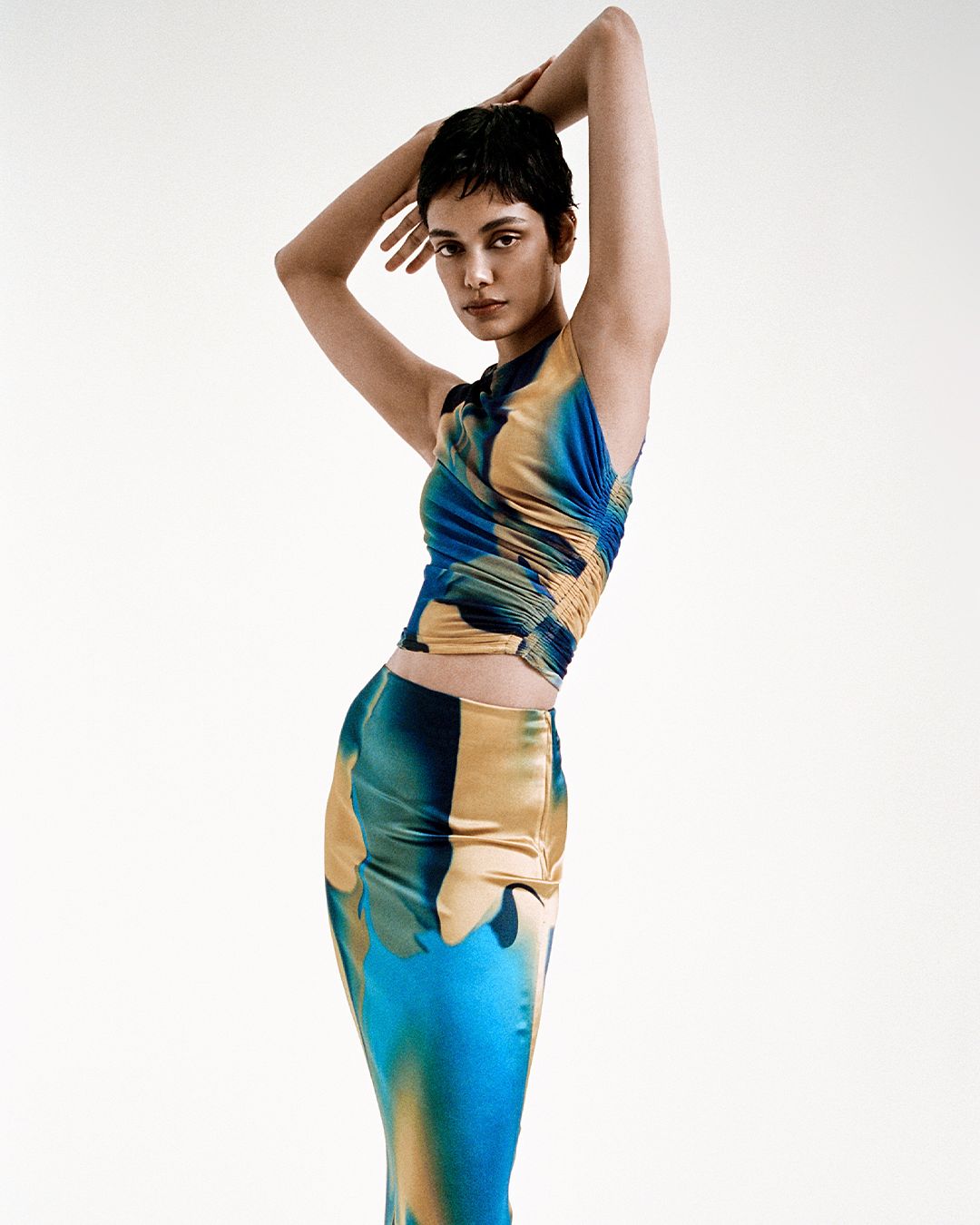
Where do you seek your creative inspiration from?
Talking to random people that I meet on the street, science, investigation, and nature.
Are you currently working on any projects that you would like to discuss or share with us?
I am currently working on the official launch of The Dotted Line an advertising studio, cultural advisory, and talent management company operating from London with three other co-founders who are veterans in there respective industry sectors of Technology, Advertising, Science, and Finance. I am also amidst the production of a documentary and writing a book.
Italian Watercolour Print Top and Italian Watercolour Print Skirt
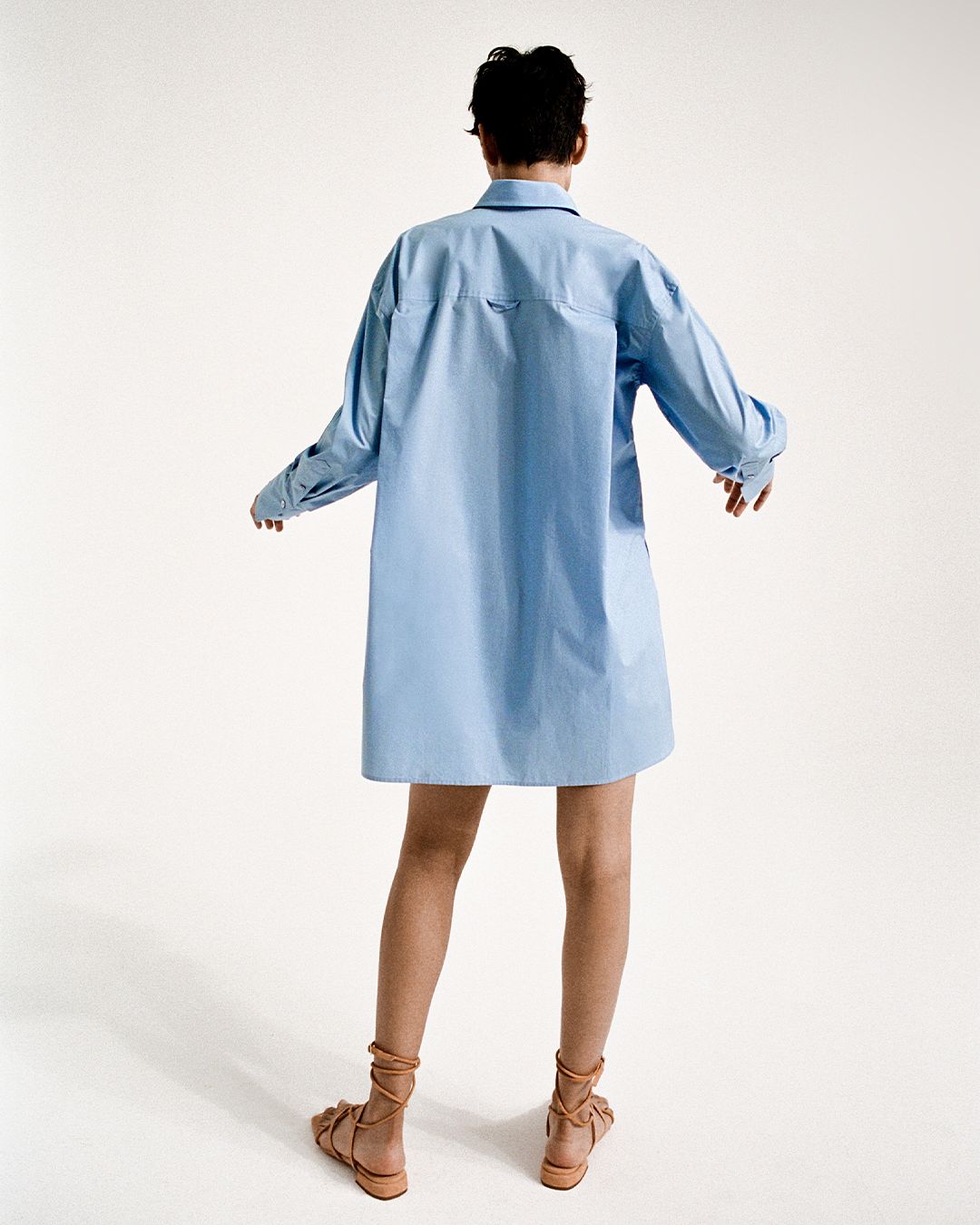
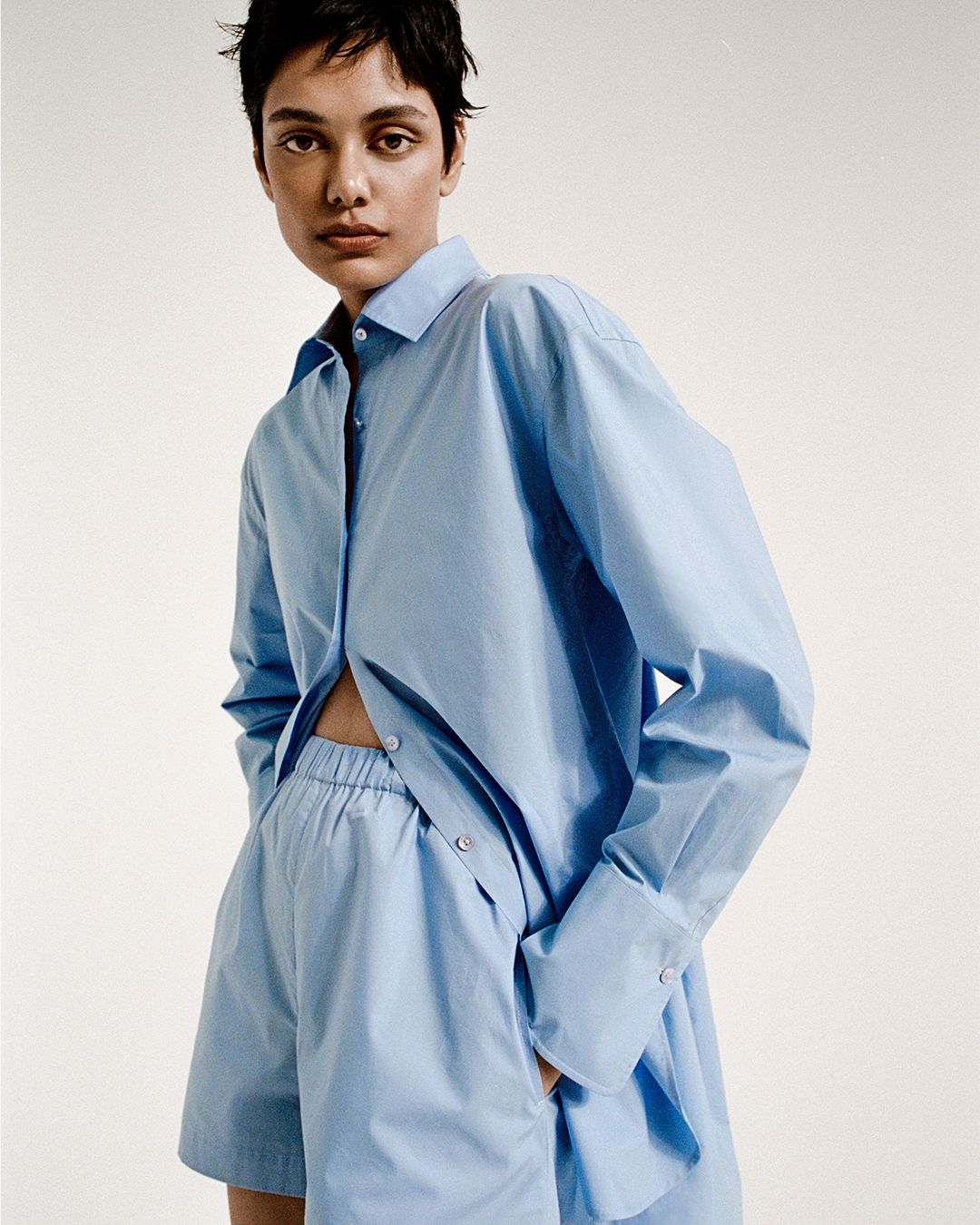
Parachute Cotton Shirt and Parachute Cotton Short
